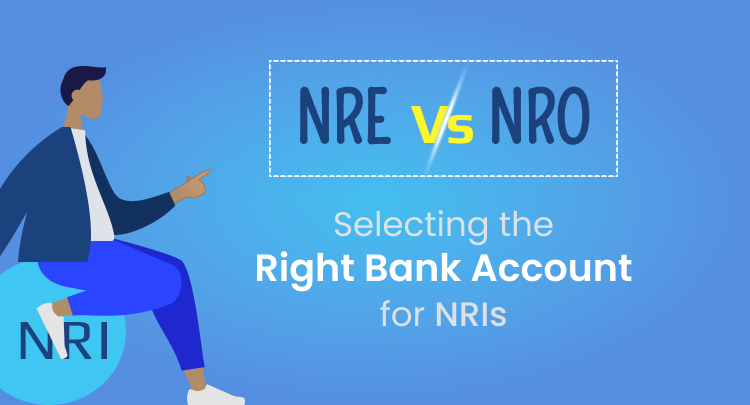NRE vs. NRO Account: Which is Better?
Investing in India as a Non-Resident Indian (NRI) can be a lucrative opportunity, but it comes with its own set of challenges and questions. One of the most common dilemmas NRIs face is choosing between a Non-Resident External (NRE) account and a Non-Resident Ordinary (NRO) account. Both accounts offer unique benefits, and understanding these can help you make an informed decision. This blog will explore the key differences, benefits, and considerations to help you decide which account is better based on your needs.
Understanding NRE and NRO Accounts
NRE Account: A Non-Resident External (NRE) account is an Indian rupee-denominated account that allows NRIs to transfer foreign earnings to India. The principal amount and the interest earned are fully repatriable, meaning they can be transferred back to your country of residence without any restrictions. The interest earned on an NRE account is tax-free in India.
NRO Account: A Non-Resident Ordinary (NRO) account is also an Indian rupee-denominated account but is primarily used to manage income earned in India, such as rent, dividends, or pension. Unlike the NRE account, the interest earned on an NRO account is subject to Indian income tax, and repatriation of funds is subject to certain limits and regulations.
Key Differences Between NRE and NRO Accounts
1. Repatriation of Funds:
NRE Account: Allows full repatriation of both principal and interest.
NRO Account: Permits repatriation of interest but limits repatriation of the principal amount to $1 million per financial year with proper documentation and compliance with regulations.
2. Taxation:
NRE Account: Interest earned is tax-free in India.
NRO Account: Interest earned is subject to a 30% tax rate, plus applicable surcharge and cess.
3. Deposit Source:
NRE Account: Funds must come from abroad.
NRO Account: Can include income earned in India or transfers from other NRO accounts. Benefits of NRE and NRO Accounts for Investment
NRE Account:
Tax-Free Returns: The tax-free interest is a significant advantage, allowing your investment to grow without the burden of Indian taxes.
Easy Repatriation: This means you can transfer your money back to your resident country without any hassle. Hedging Against Currency Risk: Since the account is maintained in Indian rupees, it provides a hedge against currency fluctuation for those looking to invest in Indian markets.
NRO Account:
Managing Indian Income: Ideal for NRIs who have income sources in India, such as rental income, dividends, or pensions.
Joint Account Facility: NRO accounts can be held jointly with residents, which can be convenient for managing family finances in India.
Flexibility in Deposits: Accepts deposits from both Indian and foreign sources, offering more flexibility in managing funds. Which is Better?
The choice between an NRE and NRO account depends on your specific financial goals and needs.
Choose NRE Account If:
- You primarily earn and want to invest foreign income in India.
- You are looking for tax-free interest earnings.
- You want the flexibility to repatriate your money freely.
Choose NRO Account If:
- You have income sources in India you need to manage.
- You are okay with paying taxes on the interest earned.
- You do not require full repatriation of funds, or you need to manage local expenses in India.





